Fall in Scottish GP numbers hugely worrying, BMA says
- Published
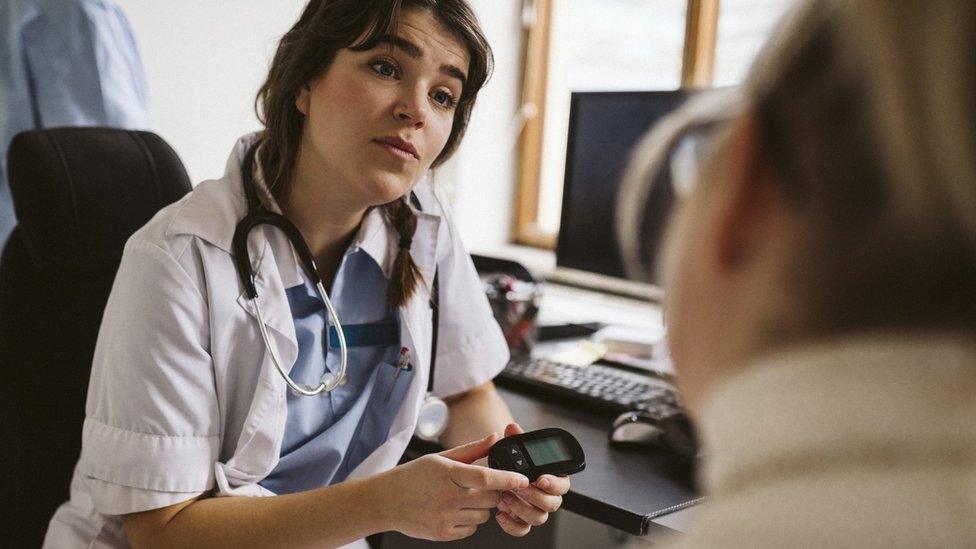
A 3% fall in the number of full-time GPs in Scotland is "hugely worrying" according to the BMA, as capacity dips to its lowest level since 2009.
It comes amid a looming winter NHS crisis which the health secretary has warned could be the worst on record.
A GP workforce survey, external indicates that the estimated number of whole-time equivalent (WTE) doctors decreased from 3,613 in 2019 to 3,494 in 2022.
The Scottish government said it was committed to providing more GPs.
Health Secretary Humza Yousaf said it still planned to have 800 more GPs by 2027.
It is thought the drop in WTE doctors is the result of women GPs being more likely to work part-time compared with their male counterparts.
The survey, published by Public Health Scotland, found that the estimated WTE - based on 37 or more hours per week being full-time - for nurses in medical practices was 1,690 - the same as the previous survey conducted in 2019.
Dr Andrew Buist, chairman of the British Medical Association Scotland's GP committee, said: "These are hugely worrying statistics that starkly illustrate the mismatch between demand and GP capacity in Scotland that we have warned of for some time.
"Put simply, this means there is less GPs capacity available to care for the people of Scotland than at any point since 2009, at the exact time we are seeing a substantial increase in the demand for care - driven by an increasing and ageing population and ever-lengthening waiting lists.
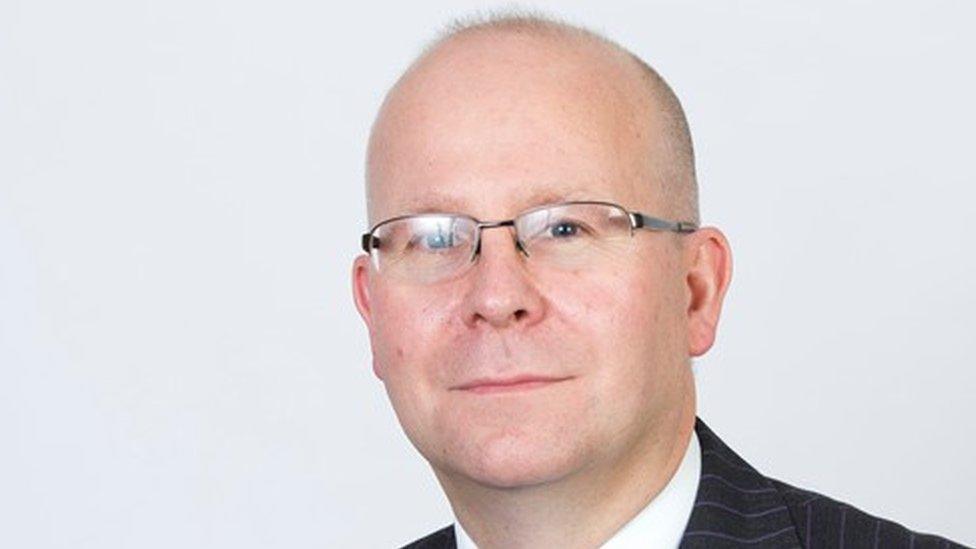
Dr Andrew Buist said GPs were cutting hours or leaving the profession due to workload pressures
"It should be little surprise on that basis that some practices are collapsing, with GPs cutting hours or leaving the profession due to workload pressures and patients struggling to get the care they need."
He added: "This is a vicious circle, as the more pressure increases the less manageable or bearable working as a GP becomes for those left working in practices - forcing them in turn to cut hours or leave.
"I believe we really are at a tipping point for GPs and practices in every single area of the country and we need urgent action and support."
Mr Buist said Scottish government pledges to increase the GP workforce by 800 by 2027 must be matched with investment.
Dr Chris Williams, joint chairman of the Royal College of General Practitioners (RCGP) Scotland said there needed to be significant improvements to data gathering, pointing out that the estimates were based on survey returns from "a little over half of Scotland's GP practices".
"It is, however, extremely worrying to see the drop in whole time equivalent (WTE) estimate of GPs," he said.
"The fall from an estimated 3,613 WTE GPs in 2019 to 3,494 in 2022 is a decrease of 3% - a reduction which cannot match the rise in workload in general practice. Our GP workforce urgently needs further investment.
"While the college supports the Scottish government's aim to deliver 800 new GPs in Scotland by 2028, we consider measuring GPs by headcount a mask to the true state of the general practice workforce.
"Up-to-date data on WTE GPs would enable a better understanding of the current workforce and its pressures, underpin workforce planning, and allow us to monitor progress against commitments."
Profound issues
Mr Williams added: "RCGP Scotland continues to call for Scottish government to address the profound issues of workload, workforce, and welfare within general practice that are crucial to retaining our GPs.
"At a time of crisis in general practice, this data deficit is a barrier to effective workforce planning from the Scottish government that must be overcome."
Health Secretary Humza Yousaf said: "To support GP practices, we have recruited more than 3,220 healthcare professionals since 2018 and are committed to investing at least £170m a year on growing primary care multi-disciplinary teams.
"We will increase the number of GP speciality training places by 35 in 2023. This is on the back of another successful round of recruitment this year with a 98% fill rate. For comparison, there was an 86% fill rate in 2020."
'Get a grip'
Scottish Labour's health spokeswoman Jackie Baillie said she was concerned that the government could fail to reach its 2027 target and urged Mr Yousaf to "get a grip" on the crisis.
"It's no wonder general practice is at breaking point in Scotland when pressures are piling up but GP numbers are falling," she said.
"The pandemic might have taken this crisis to new heights, but the SNP have been failing to act for years."
The figures also show that more than a third of GP surgeries are struggling to recruit, while a quarter also reported nursing vacancies.
Scottish Liberal Democrat leader Alex Cole-Hamilton said: "There has long been a workforce crisis in general practice, with a lack of GPs, practice nurses and other clinical staff.
"The Scottish government have allowed these shortages to worsen with year after year of cuts and mismanagement.
"Now we are at a boiling point where staff feel overwhelmed and under pressure, while patients are left waiting and waiting."
- Published15 November 2022
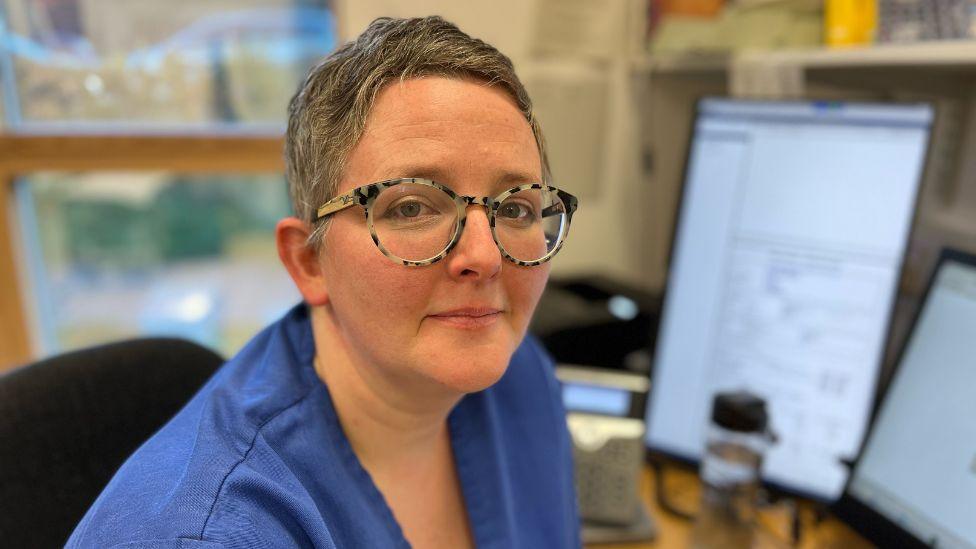
- Published4 October 2022
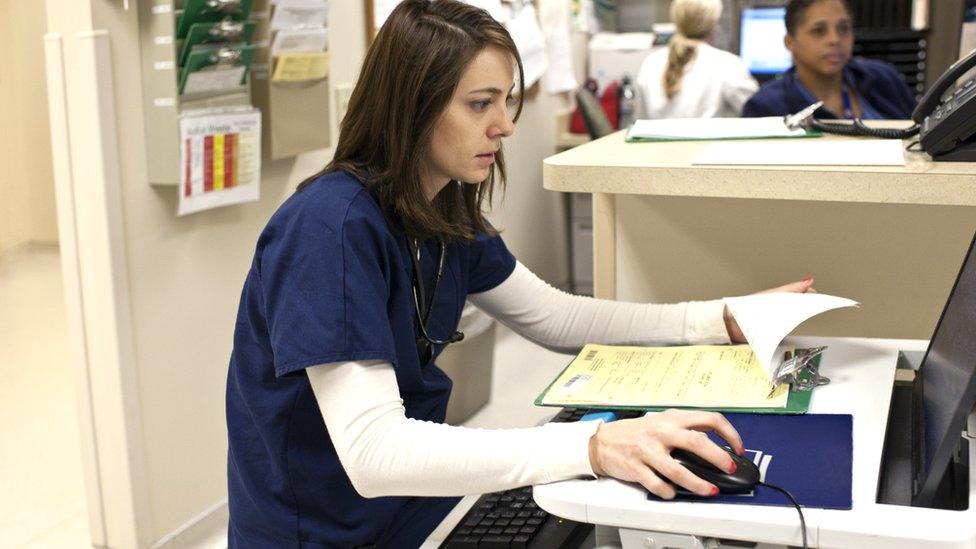
- Published11 May 2022
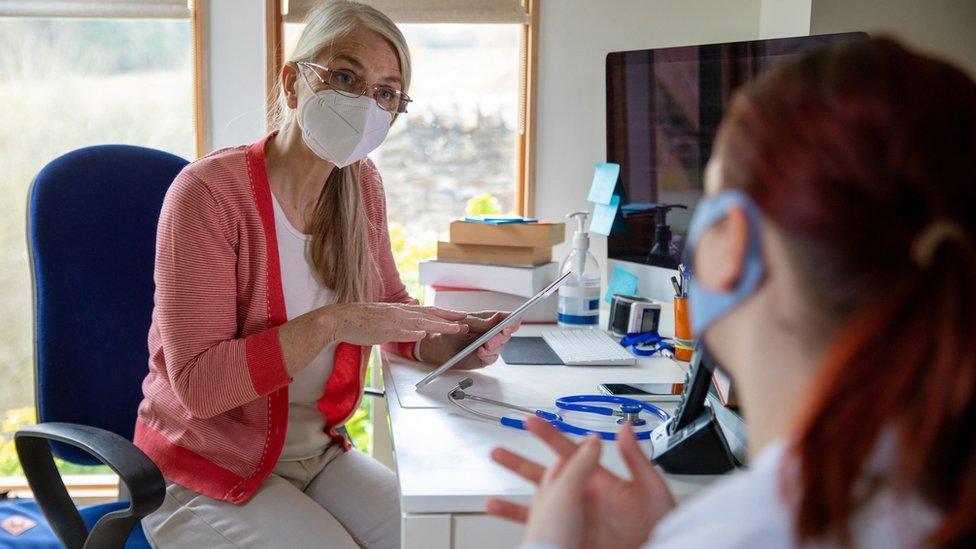
- Published31 October 2022
